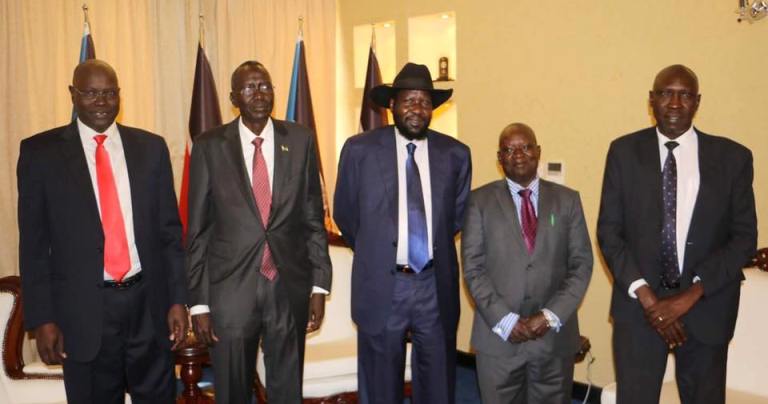South Sudan president says INGOs pay local staff in local currency “unfair”

January 18, 2017 (JUBA) – South Sudan President Salva Kiir has criticized the way in which international organizations treat their local staff members, saying they were subjecting them to unfair treatment when deciding on the currency of payment .
“When it comes to local employees they have decided to pay them in local currency, and they pay their international staff in hard currency. That is very unfair,” said president Kiir.
The president said most of the international organisations take their money outside the country, denying the country an opportunity to benefit and utilize the money they get from the work they do in the country.
“Foreigners who are working here, including the NGOs, have decided to bank outside South Sudan, and they just bring salaries for their employees. “I’m not an economist, but I think it has an effect on the country’s economy”, he said.
The President pointed that most of the hard currency generated within the country is spent abroad .
He made the remarks Tuesday during a function in which he oversaw the taking of office of newly appointed Central Bank governor and his deputy and the deputy minister of finance.
The South Sudanese pound is declining against the dollar due to the collapse of oil price, the fall of oil production and the civil war that erupted in December 2013. Also, foreign donors stopped their aid programmes to the new nation.
In Juba currency traders are selling one U.S. dollar at 103 pounds in the black market, while the official at the Central Bank is 87 pounds for one dollar .
President Kiir expressed concerns about the diminishing value of the pounds.
“What is it that made us lose the value of our money? Is it something that can be corrected, can it not be corrected?” He asked the officials.
“One of them is that, our people took their money out of the country, and money taken out of the country does not benefit us.
“Most South Sudanese have decided to reside out of the country; they just come here to get some dollars and go. That will never make us grow. But we cannot force people to remain in South Sudan, when we are not sure about the security,” he said.
(ST)
